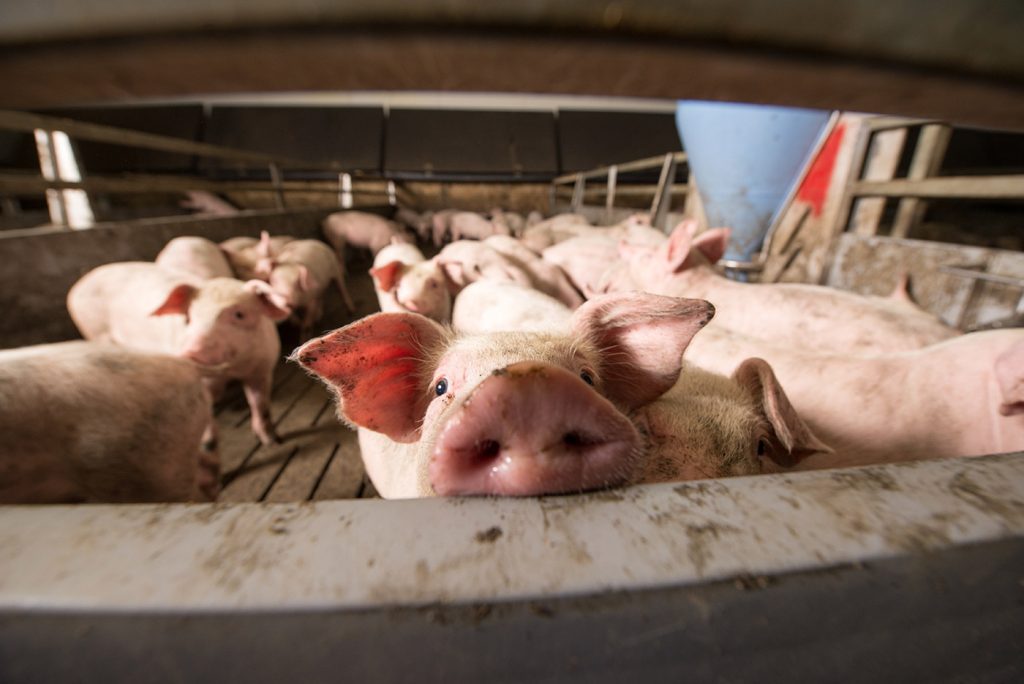
On November 8th, a federal judge ruled in favor of plaintiffs in 26 lawsuits against the hog farming giant, Murphy-Brown, allowing most of the claims to move forward to trial. The decision marks a win for local North Carolina residents suffering financially and physically from the proximity of the factory farms; however, there may never be another lawsuit filed against the company due to recently implemented legislation barring compensatory damages in lawsuits against agribusinesses.
HB 467
Earlier this year, state legislators passed HB 467, precluding economic compensation for future plaintiffs in lawsuits against companies like Murphy-Brown. Plaintiffs may still pursue punitive damages and compensation for reduced property value, but the former are difficult to substantiate and the latter provides next to nothing. The initial version of the bill would have applied retroactively, meaning the current lawsuits would have been grandfathered in and the case would have been dropped. But that provision was too big a pill, so legislators cut it.
In May, the Senate overrode the Governor’s veto with a 30-18 vote and the House supported with a 74-40 vote. By and large, the Republicans pushed the measure.
The Ruling
US District Court Judge Earl Britt refused to accept the following argument put forward by Murphy-Brown: that “nuisance suits” can’t be brought against the company. This assertion, Britt argued in his 33-page decision, relies on a wrong-headed reading of the right-to-farm law. That law precludes nuisance cases only when the plaintiff moves to a locality after a farm sets up shop. But in this case, “Their land use had been in existence well before the operations of the subject farms began.”
A Partial Victory
Though the judge affirmed a motion to seal certain documents, a majority of the Plaintiffs’ motions were affirmed, including one allowing plaintiffs to pursue punitive damages. Looking ahead, the plaintiffs will be able to make their case in court and potentially recover a fair amount of money. However, in December, Judge Britt will hear a motion from the defendant that might split up the plaintiffs into separate cases, which could make it far more difficult to recover damages and could make further legal action more difficult.
Feces on the Walls
During debates in the Senate over HB 467, state representative Jimmy Dixon, the bill’s sponsor, responded to the plaintiffs’ claims that pig feces found their way to nearby homes by saying, “These allegations are at best exaggerations and at worst outright lies.”
However, on May 5th, plaintiffs in the lawsuit against Murphy-Brown filed two documents that verified the presence of fecal matter on the walls of residents’ homes. One document was a brief opposing the defendant’s argument that plaintiffs lack sufficient property interests. In the document, plaintiffs cited an expert report written by Shane Rogers, PhD, which concludes, in part, the following:“[W]e can understand that the odor and that the feces is getting inside of their houses. We were not able to search everyone’s homes, but it is my opinion, based on what we did find, that I would find this condition present at all of the plaintiff’s homes.”
It’s no wonder Dixon said what he said. According to INDY, who’s been thoroughly covering the hog farm industry, the representative received as much as $115,000 from Big Pork in the form of campaign contributions.
The plaintiffs hope to obtain compensation for the odors caused by the presence of feces on their walls. They also hope to receive remuneration for nausea and headaches caused by the presence of the feces, as well as buzzards and pig carcasses.
Too Much Waste
As pig farms become more and more powerful, sows become more and more plentiful, making it increasingly difficult for farmers to deal with pig waste. The current practice is to liquefy the waste and place it in large open-air ponds which are then used to fertilize the land. But there’s too much waste. In 1995, 25 million gallons of putrid fecal matter spilled out of the lagoon into North Carolina’s New River, decimating fish populations and infecting the water.
Without the imposition of rules and regulations and without just compensation, companies like Murphy-Brown will only continue to litter the land and annoy nearby residents with hog innards.



Leave a Comment